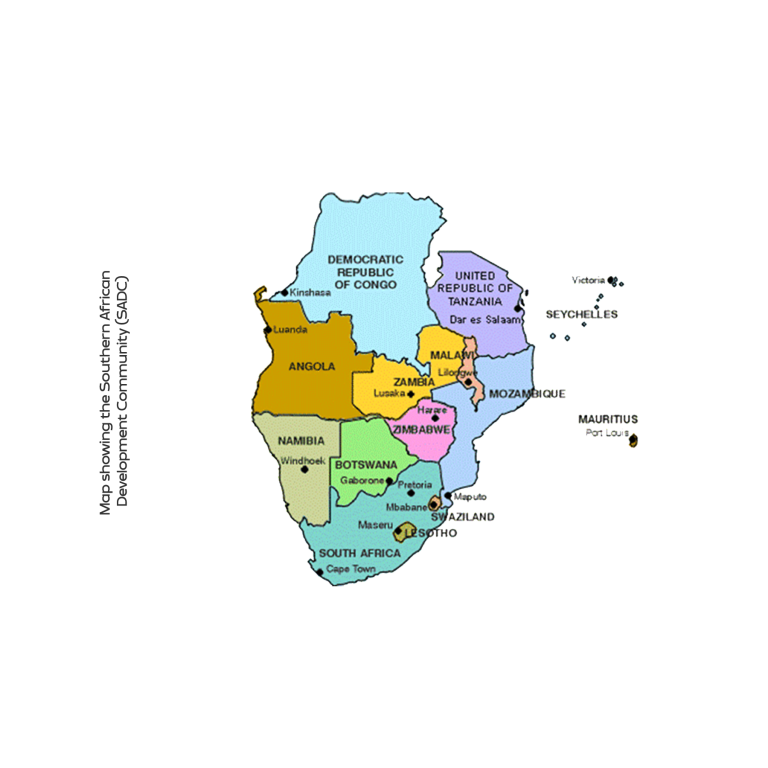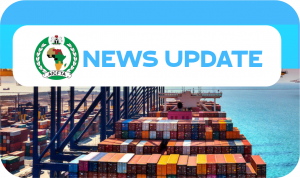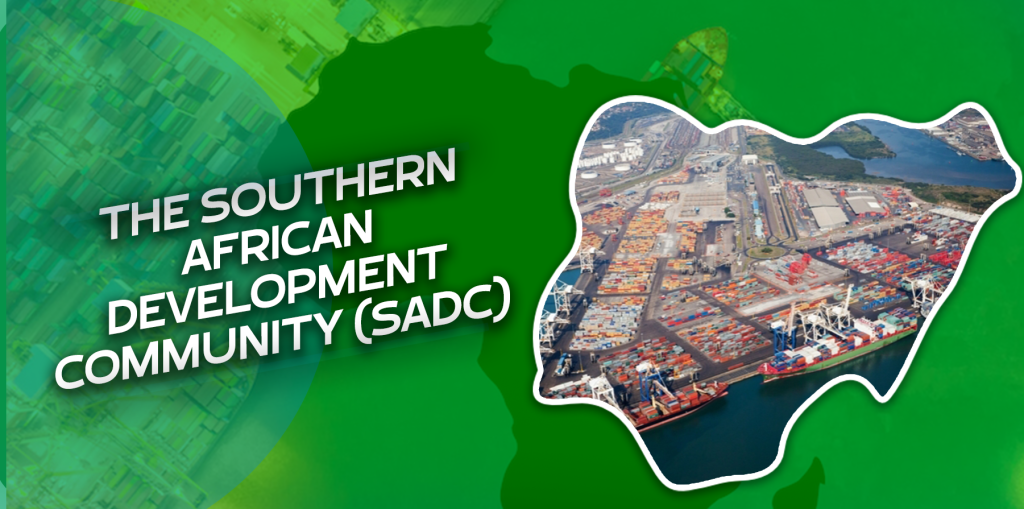The Southern African Development Community (SADC)
Welcome to our African Continental Free Trade Area (AfCFTA) Newsletter. In the previous week, we have been discussing various Regional Economic Communities. In the last edition, we discussed the Intergovernmental Authority on Development (IGAD). In this week’s edition, we would be discussing the Southern African Development Community (SADC).
The Southern African Development Community (SADC) was established in 1980 as a loose alliance of nine majority-ruled States in Southern Africa known as the Southern African Development Coordination Conference (SADCC), with the main objective of coordinating development projects in order to reduce economic dependence on the then apartheid South Africa. The founding Member States are Angola, Botswana, Lesotho, Malawi, Mozambique, Swaziland, the United Republic of Tanzania, Zambia, and Zimbabwe.
In Windhoek Summit meeting on 17 August 1992, the Southern African Development Community (SADC) was officially renamed from the Southern African Development Coordination Conference (SADCC). It was established in 1980 as Southern African Development Coordination Conference (SADCC). The Member States are Angola, Botswana, the Democratic Republic of Congo, Lesotho, Madagascar, Malawi, Mauritius, Mozambique, Namibia, Seychelles, South Africa, Swaziland, United Republic of Tanzania, Zambia, and Zimbabwe. The headquarters are located in Gaborone, Botswana.

The primary objectives of Southern African Development Community (SADC) are to achieve economic development, peace and security, growth, alleviate poverty, enhance the standard and quality of life of Southern Africans, and promote regional integration of the socially disadvantaged. These objectives are to be achieved through increased Regional Integration, built on democratic principles, and equitable and sustainable development.
The SADC Treaty was signed to establish SADC as the successor to the Southern African Coordinating Conference (SADCC). This Treaty sets out the main objectives of SADC. The SADC Treaty established a series of Institutional Mechanisms, including the following: Summit of Heads of State or Government, Council of Ministers, Standing Committee of Officials, A Secretariat, and A Tribunal.
Upon establishing the SADC Treaty, SADC restructured its institutions; at an Extra-Ordinary Summit on March 9, 2001, in Windhoek, Namibia, the SADC Treaty Amendment (2001) was adopted. Several difficulties and constraints encountered during the transition from a coordinating Conference to a Community necessitated this restructuring as part of institutional reform. As a result of these reforms, eight (8) institutions were established, under the guidance of Article 9 of the Treaty Amendment:
- Summit of Heads of State or Government
- Organ on Politics, Defense, and Security Co-operation
- Council of Ministers
- A Secretariat
- A Tribunal
- The Troika
- Standing Committee of Officials
- SADC National Committees
The regional economic communities (RECs) are recognized in the preamble to the AfCFTA as building blocks. One such REC is the Southern African Development Community (SADC).
Economic integration within SADC is driven by the SADC Treaty and the SADC Common Agenda. In contrast, the former puts both developmental and political objectives into play, based on principles such as development orientation, subsidiarity, market integration, and the promotion of trade and investment.
The main intra-SADC trade export items include petroleum, agricultural products, and textile, which are products that require good infrastructure to be moved from one point to another, accounting for only 10% of total trading with only 3% going to African countries, implying that the majority of SADC exports are exported outside of Africa.
The main concern among SADC members about the AfCFTA is inadequate infrastructure. Infrastructure is required so that goods, people, and services can flow and be efficiently transported from one country to another within the region. Lack of infrastructure raises the cost of doing business, makes the region unappealing to investors, and prevents landlocked countries and/or rural residents from accessing staple foods and even potable water. As a result, a good Regional Infrastructure Development strategy will improve economic opportunities for member states and larger markets, promote sustainable regional economic development, trade, and investment, and contribute to SADC’s ultimate goal of poverty eradication.
Other barriers to trade include high costs and obstacles for transport and logistics, as well as a lack of low-cost access to information technologies; insufficient weather forecasting services that would be beneficial in planning other sectors such as water resources, and energy.
In conclusion, despite some progress being made, there are still financial limitations that prevent many SADC countries from implementing projects. Most of these nations rely on external funding to get the job done.
Reference(s)
- “Southern African Development Community”. SADC, accessed 29th January 2023.
- “Southern African Development Community (SADC)”. African Union, accessed 30th January 2023.
- “Southern African Development Community (SADC)”. South Africa History Online, accessed 31st January 2023.
- “Southern African Development Community Economic Bloc and the implementation of the African Continental Free Trade Agreement: Challenges”. AfronomicsLaw, accessed 31st January 2023.

Buhari appoints Segun Awolowo Secretary, AfCFTA National Action Committee
President Muhammadu Buhari has approved the appointment of Mr Olusegun Awolowo as Secretary, National Action Committee on the African Continental Free Trade Area (AfCFTA) for a tenure of four years.
READ MORE
Nigeria broadband penetration now 100%, says Buhari
The President, Major General Muhammadu Buhari (retd.), on Tuesday, said there was currently 100 per cent broadband penetration across the country.
READ MORE
Chaotic implementation of new naira policy
INTENDING to create the impression that it listens, the Central Bank of Nigeria bowed to pressure on Sunday by extending the January 31 deadline to turn in the old naira banknotes.
READ MORE
Fuel Scarcity: ‘Nobody is indispensable,’ Nigeria’s military chief warns oil marketers
Nigeria’s chief of defence staff, Lucky Irabor, Tuesday warned that the petrol scarcity across the country had become a ‘security concern’ and ‘nobody is indispensable’ in bringing a solution to the problem.
READ MORE
